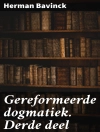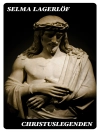In ‚Heretics, ‚ G. K. Chesterton presents a series of provocative essays that challenge the prevailing intellectual currents of early 20th-century thought. With his characteristic wit and incisive reasoning, Chesterton critiques the dogmas of modernism, liberalism, and other philosophical trends, advocating for a return to a more orthodox and whimsical view of life. His literary style is marked by paradox, humor, and a spirited defense of traditional beliefs, drawing on a diverse array of subjects from literature to psychology. This work stands as a vital contribution to the literature of faith and rational inquiry, illuminating the tensions between skepticism and belief in an age increasingly dominated by empiricism and materialism. G. K. Chesterton, an influential English writer, lay theologian, and social critic, drew inspiration from his own journey of faith and literary exploration. Born in 1874, Chesterton’s background in art and literature enabled him to engage deeply with complex societal issues, often contrasting the vitality and richness of faith with the starkness of modern nihilism. His experiences and encounters with various thinkers provided the impetus for ‚Heretics, ‚ marking his foray into public intellectual discourse and establishing him as a defender of traditional Christian values. ‚Heretics‘ serves not only as a powerful critique of contemporary thought but also as a clarion call for readers to reassess their own beliefs. Recommended for those intrigued by philosophy, theology, and literary criticism, this book promises to challenge presuppositions and inspire rigorous reflection. Chesterton’s eloquence and incisive arguments make this work a timeless exploration of the intellectual battles that rage within the human heart.
Über den Autor
G.K. Chesterton, born Gilbert Keith Chesterton on May 29, 1874, in Kensington, London, was a towering figure of early 20th century British literature. He was renowned for his paradoxical thought, witticisms, and rotund physical presence. A prolific writer and journalist, Chesterton contributed significantly to the realms of fiction, criticism, and Christian apologetics. His body of work encompasses a wide range of genres, including detective fiction, most notably the Father Brown stories, as well as a substantial corpus of essays, poetry, and several novels. ‚Heretics‘ (1905), one of Chesterton’s seminal works, is a series of essays in which he critiqued contemporary figures of his time and expounded on the dangers of modern philosophies that, to him, undermined traditional Christian values. His literary style, characterized by a playful use of paradox and a love for the common man, was both a defense of orthodoxy and an attack on the dogmatic skepticism of his contemporaries. Renowned for his debates with his friend and literary adversary George Bernard Shaw as well as with H.G. Wells, Chesterton’s acumen did not go unnoticed, and his works remain a staple in the canon of Christian literature. He passed away on June 14, 1936, but left an indelible mark on 20th-century letters.












